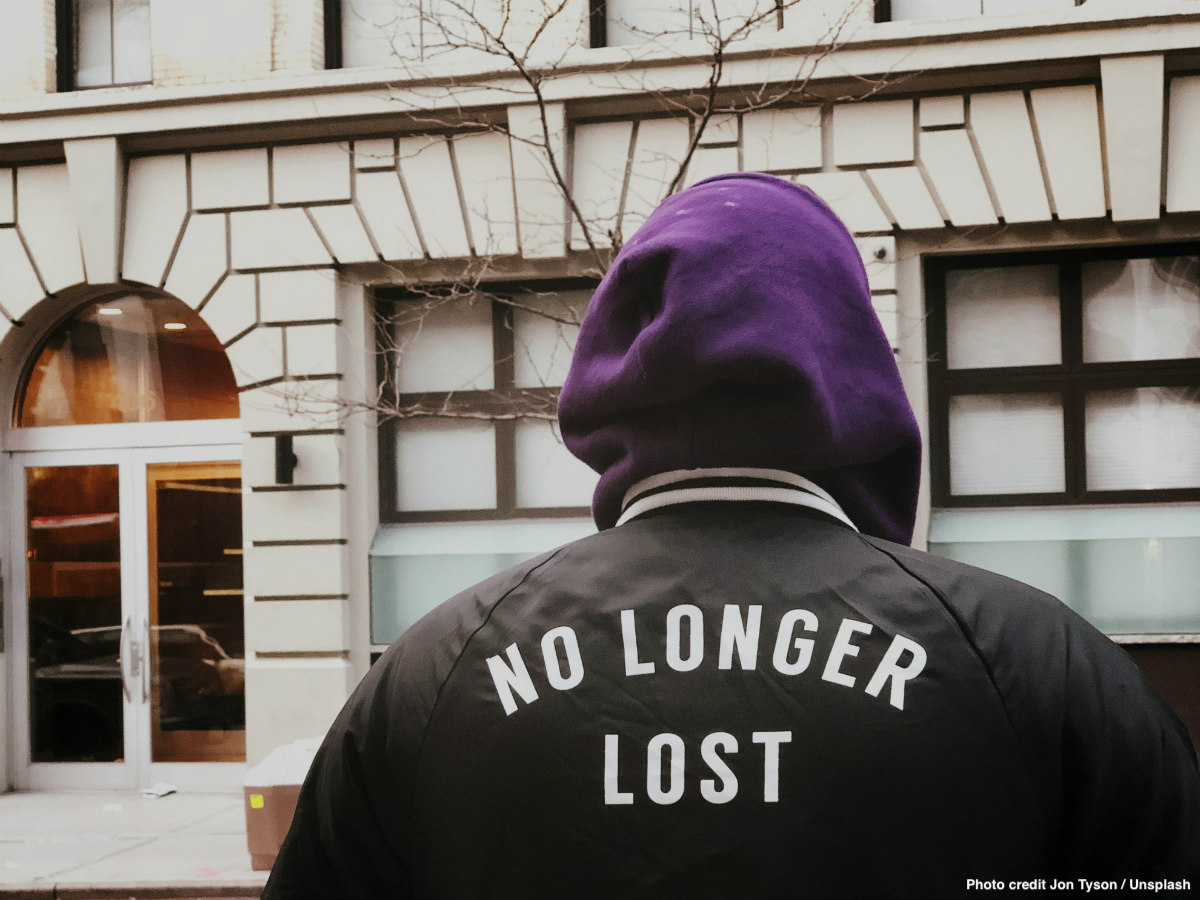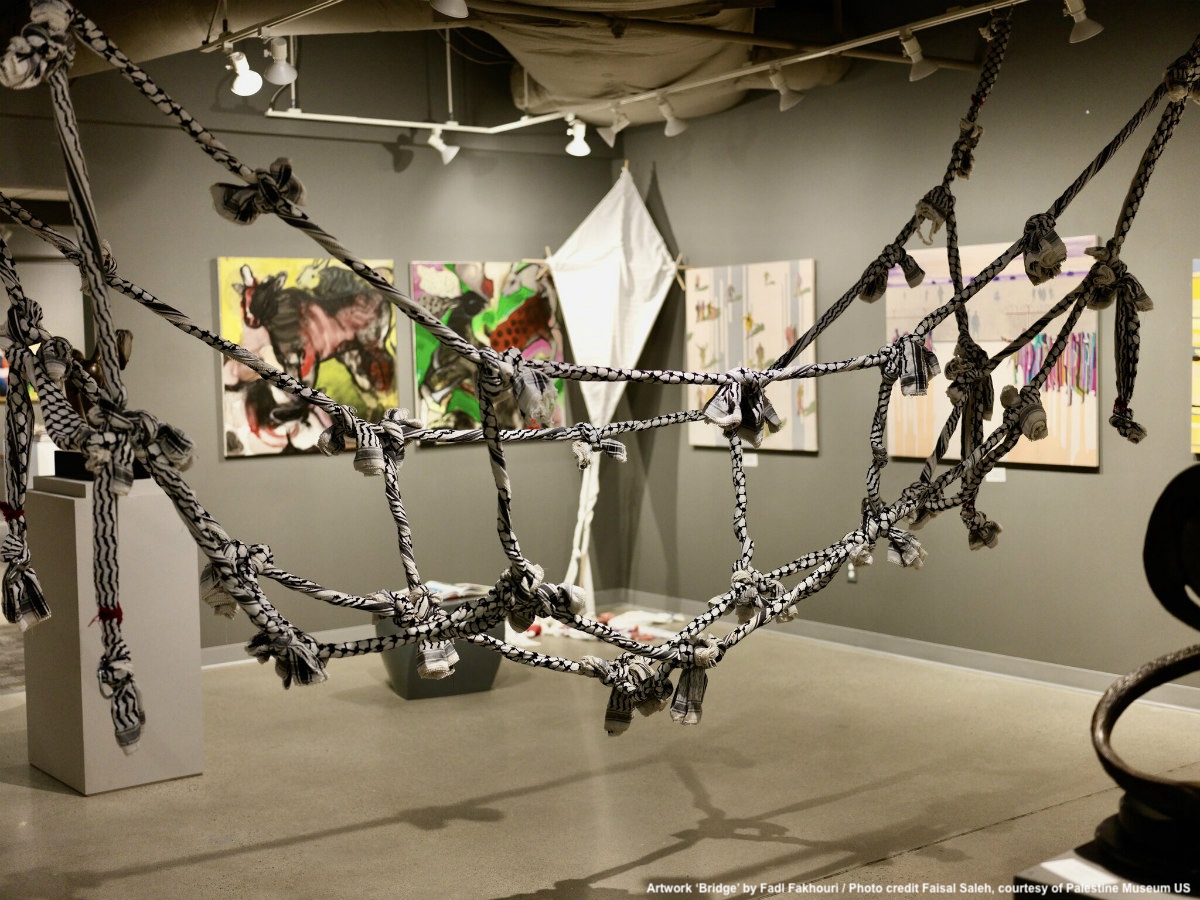Walking the streets of Bangkok once, I observed the driver of a motorcycle taxi driving a blind person to an ATM, assisting him to withdraw money and then he drove him back, presumably to his home. That scene stayed with me. The interaction between both clearly demonstrated a level of trust that would be unthinkable for a similar service behind the randomness of a street cab or the algorithm of a ride-hailing app. But the so-called Win drivers have been an informal and key component of Bangkok’s transportation system since the 1980s.
Located at the entrance of small alleys, metro stations, and major junctions, and dressed in colourful orange vests, these motorcycle riders crucially connect the main public transportation system to Bangkok’s winding alleys and walkways impenetrable by motor vehicles. Due to their strategic locations throughout the city Win drivers are often the first to respond to an accident and guide traffic. During the red shirt protests in the 2010s they played a significant role in blocking, filtering and redirecting the flow of people and information when the protests took over the centre of the city. Their intimate knowledge of Bangkok’s streets is unique.
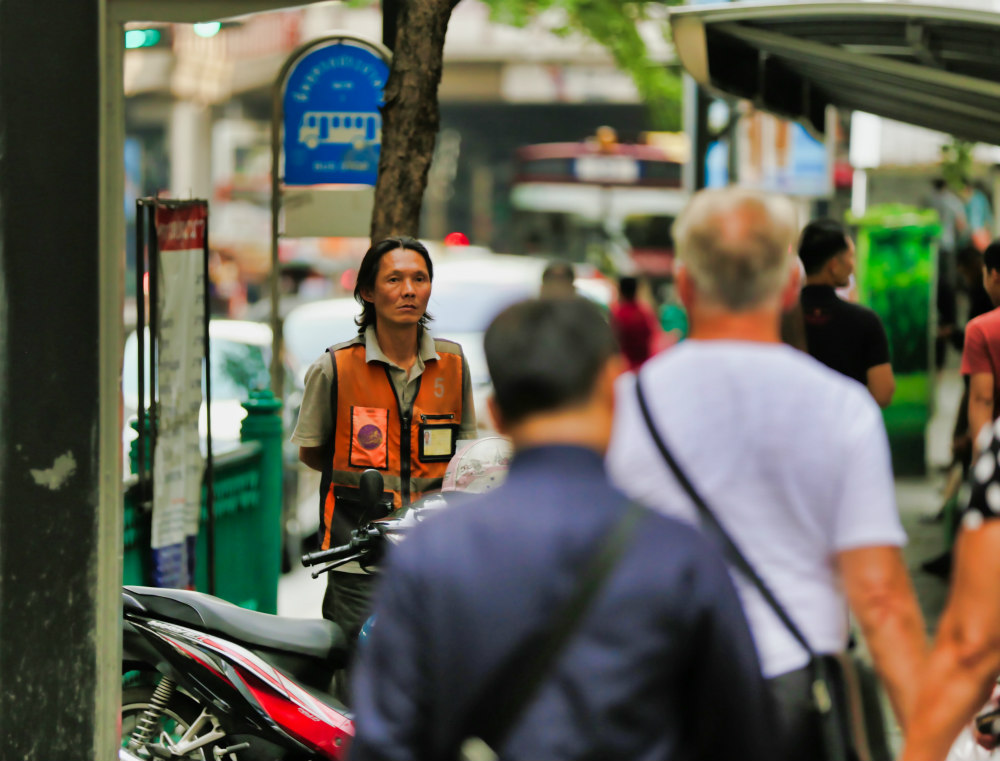
Although the dynamics of informal transport in the global south has been often ignored, it has burgeoned throughout cities, filling the gap of inadequate and increasingly expensive public transport offering efficient mobility services within neighbourhoods for a reasonable fare. However, the rapid rise of ride hailing platforms and delivery apps such as Grab, Foodpanda or Lineman has intensified the competition with these traditional transport service providers and created tensions, at times violent conflicts, over who takes control over customer pickup points.
Fierce competition is having negative consequences ranging from over high commission fees for small restaurants, environmental issues, to precarious working conditions for riders. The latter has already received considerable media attention in Western cities. However, in countries such as Thailand the conflict between newly emergent delivery riders and existing services informally organised displays an additional dimension.
Win drivers underwent a process of formalisation under the Thaksin administration in the early 2000s, however their organisation is still deeply embedded in the social fabric of their communities. Where delivery riders and drivers only need to sign up on an app to be able to start working, becoming a Win driver is highly dependent on kinship and patronage relationships. Platform riders are organised by a distant algorithm, but Win driver stands are organised following established unwritten social norms and rules. And while platform riders are roaming the whole city to pick up customers, Win drivers are strongly territorial and only pick up customers in their immediate area.
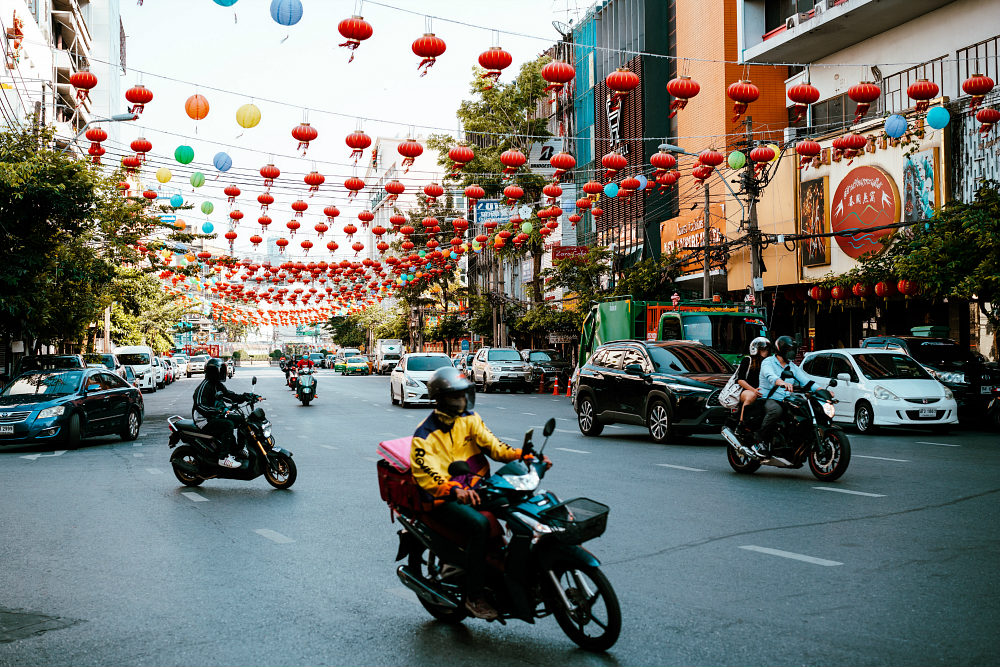
When Carlo Ratti, Director of MIT SENSEable City Lab, wrote in an op-ed in the Financial Times “But imagine a world in which, instead of wavering between Uber, Lyft or a regular taxi, we could open a single app that figures out which service is closest and most affordable,” who would have thought that this world could be in Bangkok. Yet this informal transport services socially embedded in communities such as Win drivers are not necessarily inferior to the rationalised services of a big capital, observed a research team from the Institute of Asian Studies (IAS) at Chulalongkorn University in Bangkok, and something could be learned to counter “the price of anarchy” and slash carbon emissions in the way they are organised.
Two years ago, at a time of conflicts dangerously rising between Win drivers and delivery riders and drivers of new platforms, that research team began playing with the idea of how Win drivers could co-exist with large corporations and stay in the market as they are, thereby cooling down tensions. While some Win drivers have opted to join these new platforms based on algorithms, this is neither an option for every Win driver nor does it preserve their traditional form of organisation and relationships that seems so important in neighbourhoods.
So why not add the food delivery service to the ride-hailing one of Win drivers using a system that goes along with their existing “informal” organisation and allows drivers to get a second income source? Akkanut Wantanasombut, together with his research team, developed the initiative Tam Sang-Tam Song (“You Order, We Deliver”) that follows Win driver’s traditional queuing system and favours the efficiency of their territorial spirit.
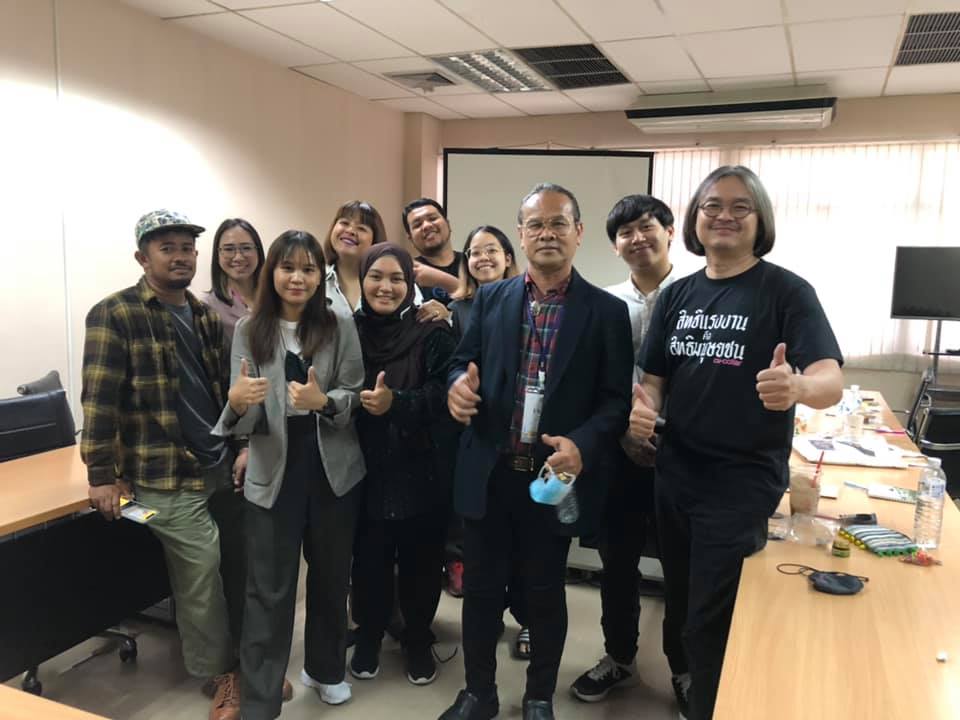
The formalisation of the riders in their own delivery platform, explains Wantanasombut, allows them to work and survive on a community level against the major operators in Bangkok. “Tam Sang-Tam Song aims at levelling the playing field between Win drivers and platforms through the development of a platform focused on the local community.” However, he continues, our focus goes beyond Win drivers and “ultimately intends to empower local communities and retain the community spirit.”
I accompanied Wantanasombut’s team to meet a Win driver’s stand in a new area and it was very interesting to observe first hand how they approached the community. Contrary to impersonal algorithms, here it is important to engage stakeholders on their terms and adapt the approach to their context, explains Wantanasombut. This means introducing the idea slowly and respecting the customs and circumstances of the relevant group, something that has been reflected in the technical aspects of the platform.
TamSang-TamSong utilises Line, a commonly used messenger app in Thailand, as the basis of its delivery riders. This ensures that there are few technical barriers for participants. Furthermore, while the platform operates like a chatbot it relies on a human administrator of the system instead of an algorithm which further reduces technical barriers as the operator can call Win drivers if they do not own a smartphone.
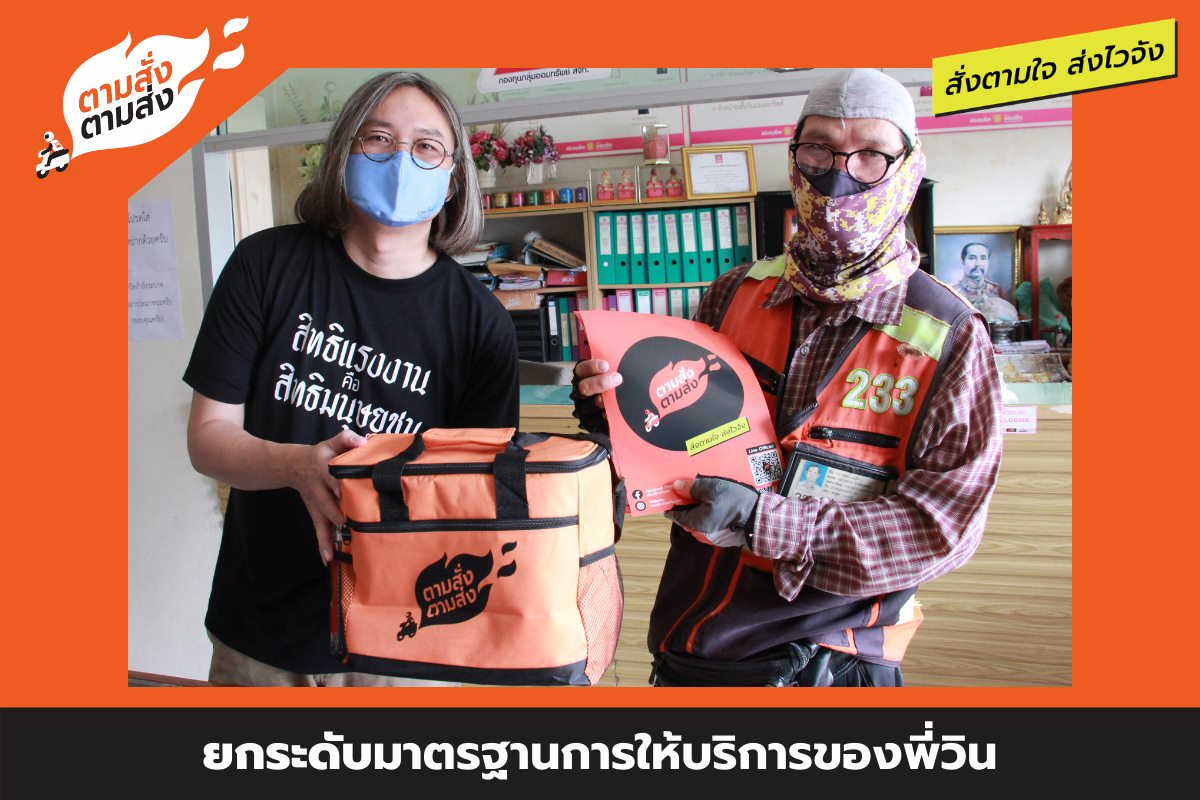
The delivery orders are distributed in accordance with Win driver’s traditional values. When an order is placed, a queuing system based on location data will give the gig to the closest Win driver, instead of going to the driver who accepts it the fastest. And if there are multiple riders nearby, the delivery order goes to the one who has been waiting the longest. During my visit it became apparent that this adherence to the Win driver system is crucial to gain their support as one Win driver stressed the importance of not skipping the queue and being able to differentiate between the territories of the different Win stands in the area.
Tam Sang-Tam Song aims at levelling the playing field between Win drivers and platforms through the development of a platform focused on the local community – Akkanut Wantanasombut
After approaching the Win drivers in a certain area, the team would then talk to restaurants around it to get their support for the platform. But bringing both groups together is not easy, explains Wantanasombut, as the two groups might not trust each other. By now TamSang-TamSong has expanded its operation to nine different areas across Bangkok as well as areas to other provinces such as Phuket, Yala, and Pattani. The initiative took off in early 2020 with seed funding from the Thai Health Promotion Foundation with the pilot of a community-led platform in the Ladprao 101 area. Due to its success, TamSang-TamSong received further funding from both the Thai Health Promotion Foundation and Chulalongkorn University also in an effort to support the Sustainable Development Goals of the United Nations.
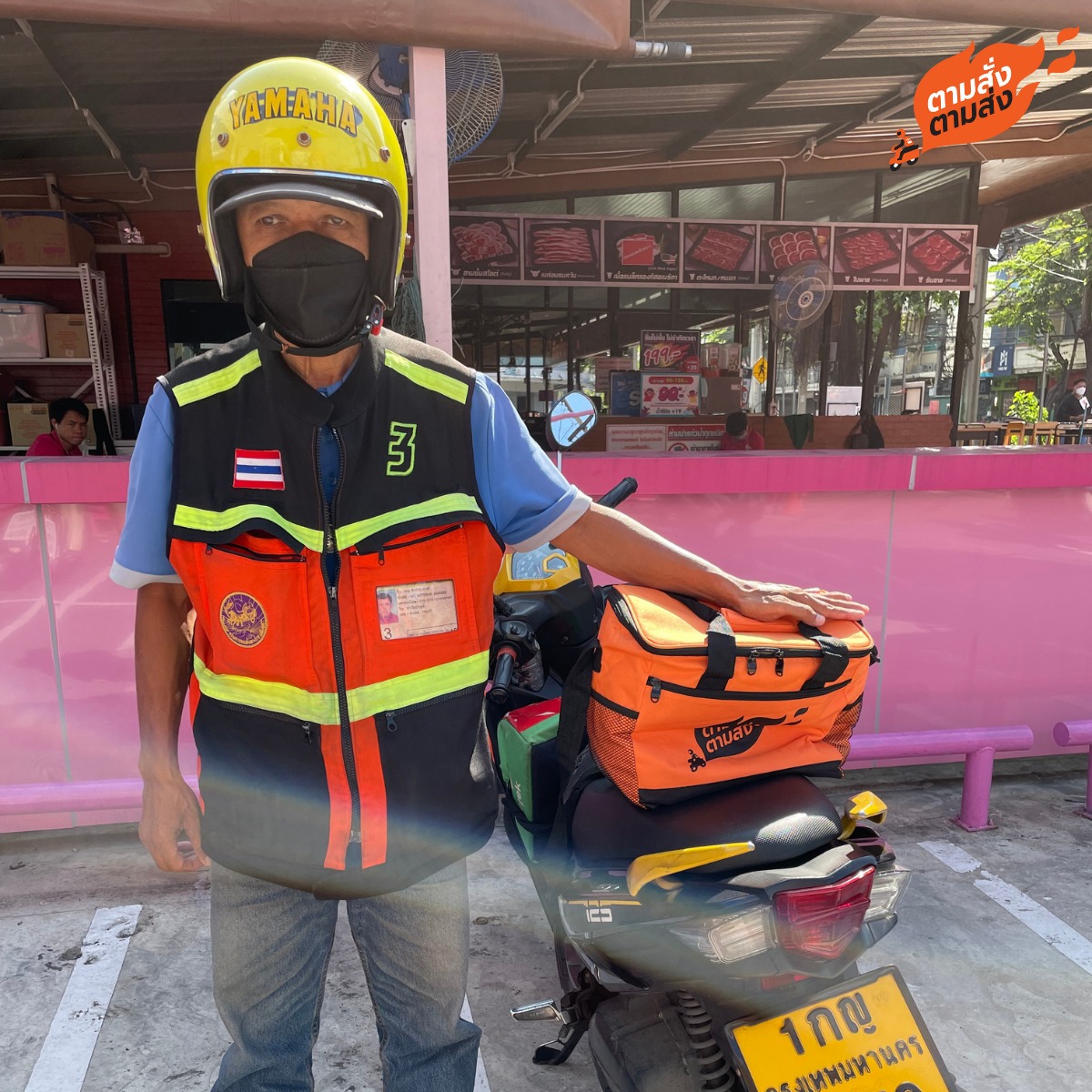
The importance of proximity of delivery riders in a local area contributes to meeting the environmental sustainability goals by limiting the amount of CO2 emissions. To minimise CO2 emissions TamSang-TamSong further allows customers to order from different restaurants in the area at once to avoid multiple trips. The initiative further experiments with other forms of environmental actions. In Phuket the platform has partnered with Phuket Environmental Foundation and GIZ GmbH to reduce single-use plastic using renewable packaging as well as an EV scooter company to measure the impact of using electric motorbikes on CO2 emissions.
The platform still relies on the administration support from the research team to operate but the goal is to have the stakeholders take complete ownership and operate the platform themselves. Overall TamSang-TamSong demonstrates that community led delivery platforms are possible and furthermore they can potentially address some of the issues of established technological platforms. By leveraging on available local resources and low-tech solutions the initiative does not need to rely on economies of scope, continuously growing to eventually turn a profit, but can operate self-sufficiently in a local area.
Similarly delivery rider collectives in Europe and across the Atlantic are relying on the concept of platform cooperativism to compete with global platforms and humanise the business model. Yet in Bangkok the Win driver’s territoriality and community ties make it possible for residents to form relationships with drivers that are built on trust and consequently come to service agreements that go beyond short time transportation.
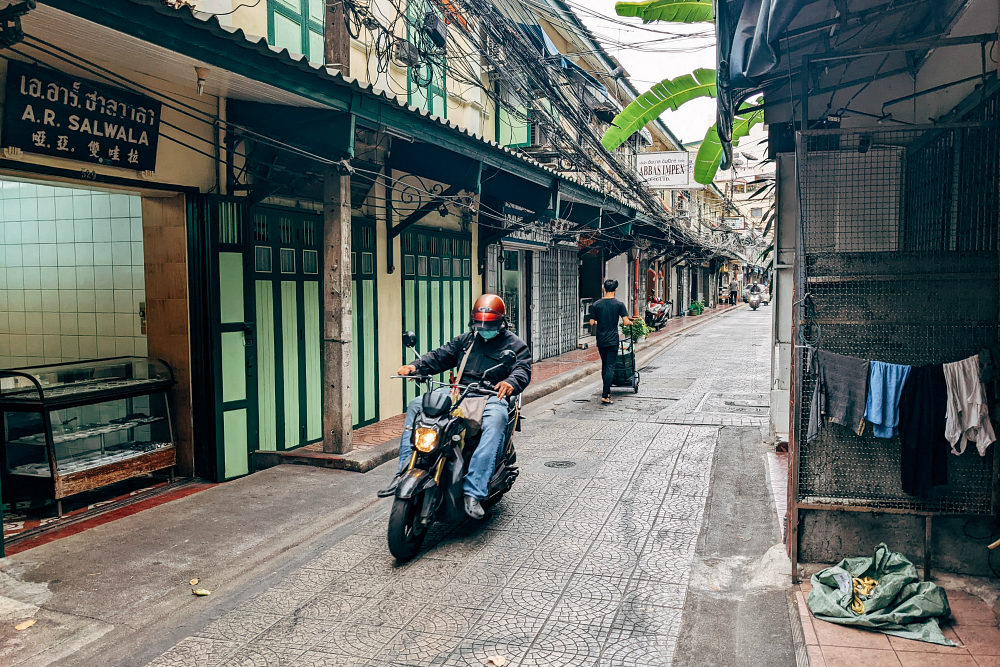
Foremost the initiative works towards the well-being of the community based on the framework of Social Solidarity Economy. Akkanut stresses the importance of TamSang-TamSong’s community orientation. Rather than employing a multitude of drivers that can be easily fired or stand idle due to low demand, the initiative empowers local Win drivers to improve their livelihoods while preserving their connection to the community. In addition, the platform gives small local restaurants their agency back by allowing them to participate in a delivery platform rather than having to accept exorbitant commission fees from larger platforms. Their strong in-group relationships, furthermore, enables them to weather economic crises and other shocks much better as they build urban resilience through a tight-knit community that can assist its members in times of need.
TamSang-TamSong therefore demonstrates how we can leverage the convenience and efficiency of the platform model while at the same time empowering communities and preserving traditional social relationships in a world that is increasingly rationalised and void of meaningful human interactions in the marketplace.


